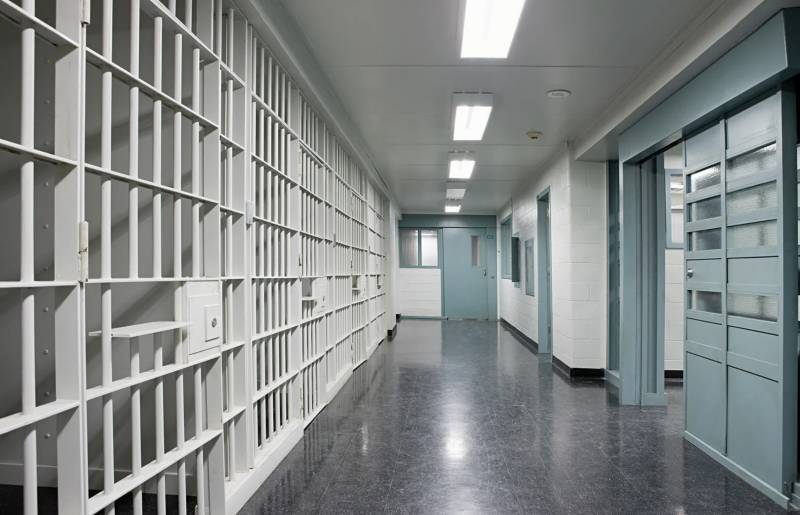
“You can chain me, you can torture me, you can even destroy this body, but you will never imprison my mind.”—Mahatama Gandhi
The imprisonment of persons accused of felony has been an ancient practice with the intention of limiting their access and ridding them of the opportunity to replay their devilish acts. Over the centuries, monarchs and different governments have generously used this form of punishment to suppress rebellion, freedom of speech and confining ‘mischievous’ elements from influencing others. The idea is to snatch prisoners’ freedom and prevent them from hurting themselves and others, especially true in case of serial killers, thieves and dacoits.
Another popular way to constraining human beings is through house arrest where offenders remain restricted to within the four walls of their residences. This form of punishment dating back to the seventeenth century is used in cases where judges do not find imprisonment as appropriate. Requiring strict monitoring (these days by electronic mediums), this reduces the burden on the state exchequer and allows detainees to earn their livelihood. In Pakistan, well-connected and high-end personalities are usually subjected to house arrests.
In general terms, the concept of incarceration is related to judicial pronouncements or where governments consider themselves justified in restraining certain individuals. However, in the normal course of life, human beings are born free and should not be condemned to restriction of movement unless there are exceptional circumstances. For example, in the case of neurodivergent persons capable of inflicting harm, where in extreme situations they are even further bound in chains. Matters take a bizarre turn when such occurrences take place in the private sector, meaning thereby when employers, relatives or friends strip people of their freedom.
We know for sure that in Pakistan, there are instances where employers have enslaved brick kiln workers depriving them from seeking better earning opportunities. Girls who want to exercise their choice of marrying outside their families too are sometimes confined to their homes to either be forcefully married to someone else or in some eerie cases, silently put to death for daring to defy family norms. In many situations, usually the womenfolk become victims of such an atrocity as men, being stronger are more capable of resisting these attempts.
Stories of privately maintained jails have emerged in the media where the influential and powerful conveniently lock up anyone they want to punish and subject them to torture, humiliation and inhuman acts. Governments have failed to prevent these barbarities and even unearth these gallows where extra-judicial acts are performed without fear. The psychology of control is overwhelming for some where the slightest of differences are met with severe ramifications. The victims are overcome with trauma and their helplessness in terms of their poor statuses prevent them from raising their voices against this cruelty. Thus absence of justice in its true form leads to continuation of these monstrosities.
One would imagine that only the uncivilized and traditionally orthodox indulge in the act of physically detaining human beings when they refuse to listen or fail to obey but this is not so. Two examples of notoriousness are worth observing. One is that of Blanche Monnier (1849-1913) who at age 25 fell in love with a lawyer but as he was disliked by her mother the union was disapproved. Consequently, 25 years later Blanche was discovered locked up in a dark room where she was held captive by her own parent. On receiving an anonymous letter, the police discovered her whereabouts where she was found shackled to a bed surrounded by rotting scraps of food and feces. The highly inhuman condition of the girl who was then around 50 years old, only goes to show to what extent even one’s own relative with a bloated ego can go to exert control over a person.
Another gory tale of imprisonment by a parent is that of Elisabeth Fritzl whose freedom was compromised in 1984 in Austria. Her fault was that as a teenager, she made many attempts to flee her home and was eventually apprehended by her father Josef Fritzl, who forced her into a cellar he had constructed which became her underground abode for the next three decades. No one should go through the trauma that she suffered at the hands of her own father and when she subsequently found liberty, he was indicted in 2009 on several counts including rape and murder.
The question here arises as to why there is a need to control humans to a point where their very existence is stifled by those who give them birth. Blanche’s mother and Elisabeth’s father are examples of those unique parents who can unleash a reign of terror on their own offspring on extremely flimsy grounds. After all, what goes on in the minds of such insensitive persons where they are unable to retain themselves from inflicting cruelty on other human beings? Some experts consider cruel behavior as a dysfunction of self-control while others believe that violence is just part of our nature. Again, it is believed that cruel acts are performed in ways that are deliberate and consistent with our sense of morality.
So, in either of the above cases as in many others, the main thrust of the perpetrators is on teaching a lesson for defiance. In their enthusiasm, they forget that the experiences they put others through could be more destructive than the ones they would have subjected themselves to if they were given the freedom to choose. Blinded by their power they fail to see the outcomes of their own acts and ultimately end up imprisoning themselves in virtual and if found out, in real gallows.

